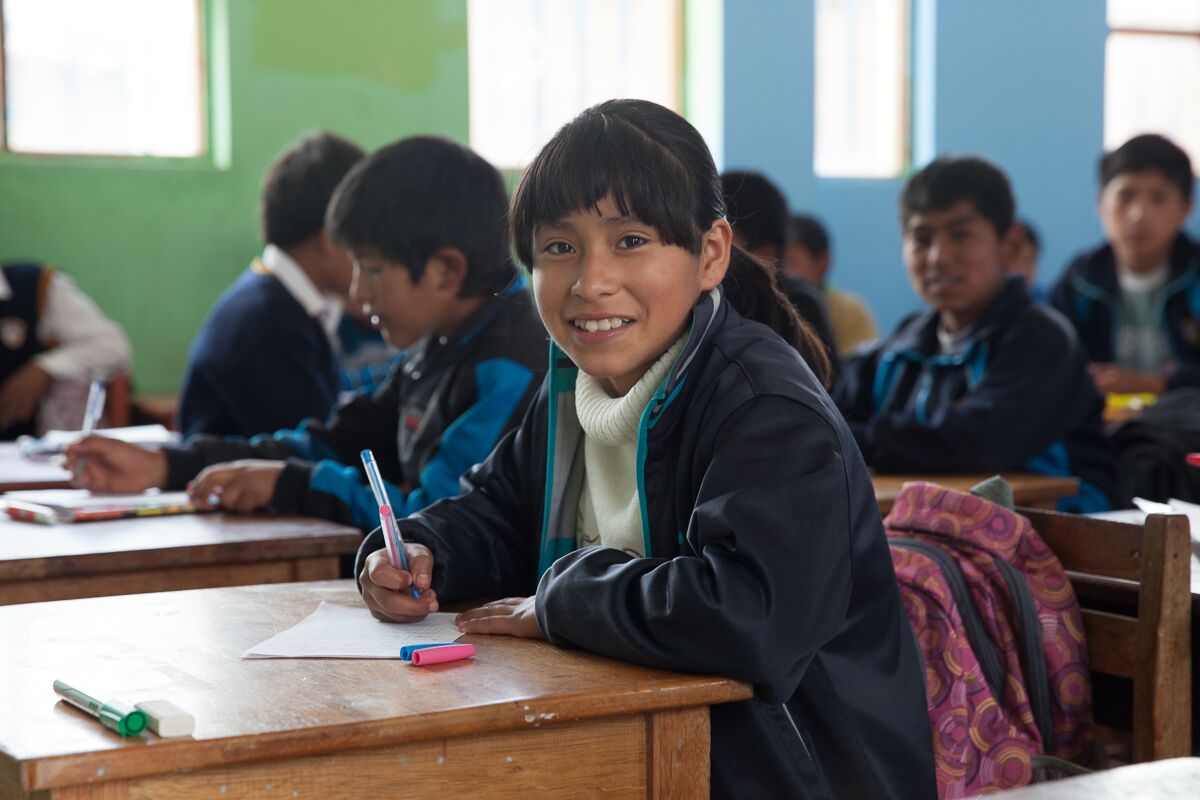Education is an integral part of youth empowerment. Unfortunately, it’s an untapped privilege in many areas of the developing world, making it inaccessible to a large majority.
Students in North America often see schooling as a right, as opposed to a benefit that they have over millions. In the most recent Global Education Report, almost 263 million children worldwide were out of school. Countries in South America face this issue on a day-to-day basis, with Peru racking up the title as one of the countries with the highest ratio of children who are out of the classroom.
Although school enrollment rates have improved, youth still continue to temporarily, or permanently, leave school to assist their families. Kids aged between six and 14 are forced to work long hours in dangerous circumstances.
Girls, in particular, have a challenging time stepping foot into the classroom. In rural Peru, only 5 percent of girls attend college and only approximately 36 percent graduate from secondary school. For girls who face disparity in education and lack empowerment, the Peruvian Hearts are here to help.
In 2003, what originally started as a trip back to her birth home, founder Ana Dodson encountered several life-changing experiences that paved the way for the ongoing work of the organization. During her stay, Dodson visited orphanages with books and teddy bears as gifts for the children. After creating a connection with one of the girl’s and saying goodbye, Dodson realized her bigger purpose in life.
“I wanted these same advantages for the girls in Peru," Dodson said. "They needed more than books and bears, and I believed that if I tried, I might be able to really help them.” Born in Cusco, Peru and adopted as a baby, Dodson strives to empower young women and girls through various programs. Working out of Colorado, USA, the Peruvian Hearts works to end poverty and gender disparity by educating young women and creating leaders in Peru.
Not only are millions affected by the extreme poverty within Peru, but machismo is also a highly prevalent existing idea that affects women in their day-to-day lives. Machismo is the belief that males are more powerful than their female counterparts, resulting in an aggressive masculine pride that is prominent throughout South and Central America. the concept of machismo consistently reinforces the idea that women's rights are less valid in society.
Peruvian Hearts currently supports a local orphanage called Hogar Mercedes. Home to about 15 girls, each suffering from archaic circumstances, malnourished and limited to education, the Peruvian Hearts supports the emotional and socio-economical needs of each girl so that she can dare to dream. The organization continues to support the Hogar Mercedes by sending groups of volunteer visitors and in-kind donations.
In Peru, girls are also facing many medical challenges. Too often, they’re walking two to three hours to school, receiving little food throughout the day. The Peruvian Hearts participate in the Nutrition for Change, which helps the children get the food that they need for the success they deserve. By providing a nutritious lunch, Peruvian Hearts ensures that young children are channeling their thoughts towards education happening in the classroom, and not focusing on thinking about the next time they will have access to a meal.
Danny Dodson, the Executive Director of the Peruvian Hearts, is inspired by not only the scholars that come through - but by the organization and how far they’ve come. “The successes that I have seen thus far, after almost six years of running the empowerment program have been dramatic,” Dodson said. “The personal development of our girls has been by far our greatest success and the transformation within their families has also been dramatic.”
Girls who faced sexism and inequality are being seen as their own individual. “Fathers, who were at one time not supportive of their daughter's education, now ask for their daughter's opinions and respect their daughters," Dodson said. "The families of our girls now understand that their daughters are the key to breaking the cycle of poverty for the entire family.”
Peruvian Heart’s first group of scholars graduated in April 2017.
To learn more about the Peruvian Hearts and to donate, click here.


























